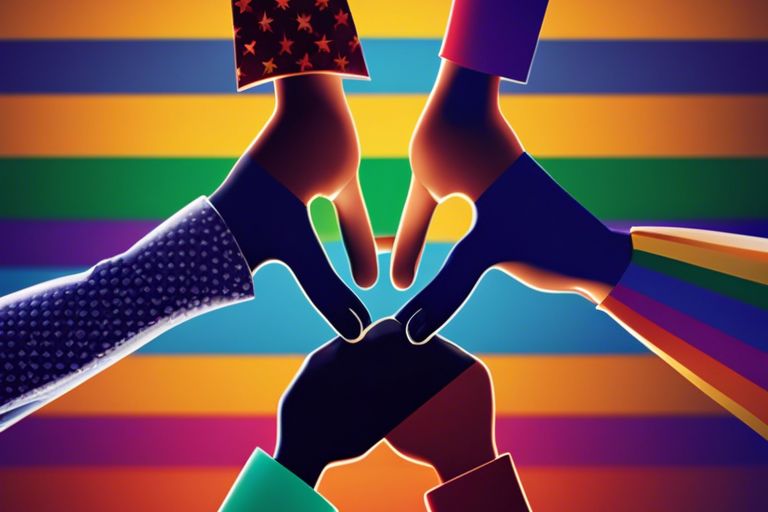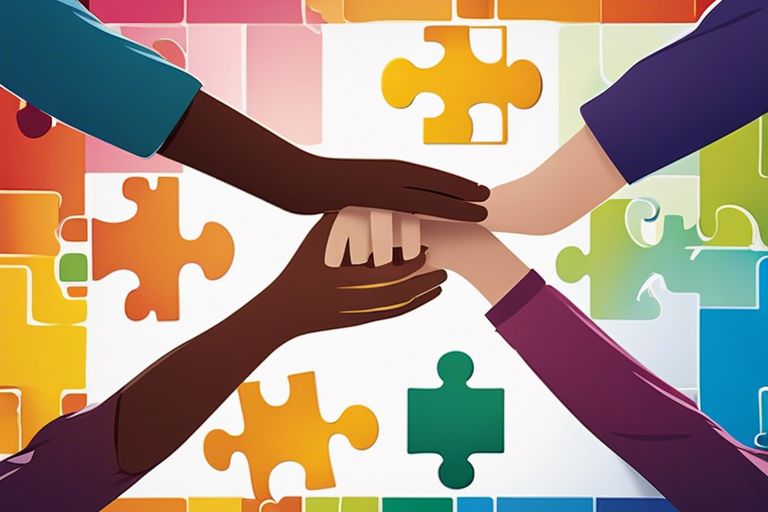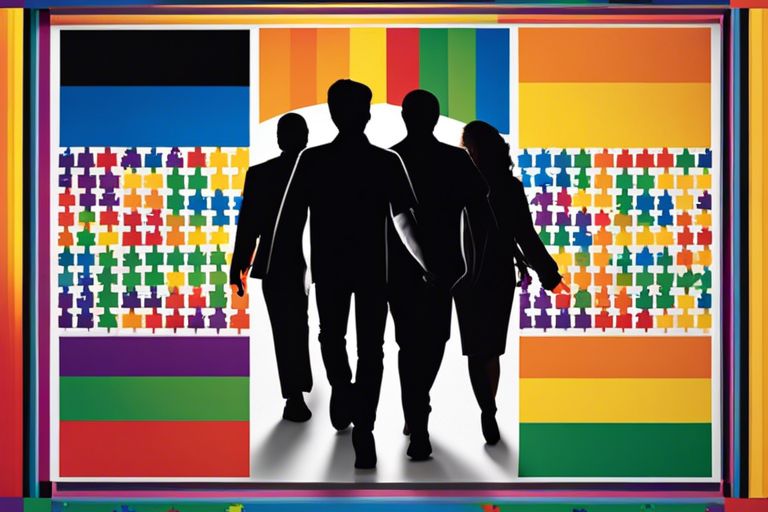When it comes to supporting LGBTQ+ individuals with autism, understanding and empathy are key. Both communities face unique challenges, and those who belong to both groups often encounter additional barriers. It is crucial to create a safe and inclusive environment that celebrates diversity and promotes acceptance. Our Autism, Pride, and How to Support an LGBTQ+ Child care note offers valuable insights and practical tips on how to provide effective support. By being educated and proactive, we can help create a more inclusive and supportive world for LGBTQ+ individuals with autism.
Key Takeaways:
- Understanding the intersectionality: It is crucial to recognise and address the unique challenges faced by individuals who identify as LGBTQ+ and have autism.
- Providing tailored support: Tailoring support services to meet the specific needs of LGBTQ+ individuals with autism can significantly improve their well-being and quality of life.
- Promoting inclusivity and acceptance: Creating inclusive environments and promoting acceptance can help LGBTQ+ individuals with autism feel valued, supported, and empowered.

Challenges Faced by LGBTQ+ Individuals with Autism
Societal and Cultural Barriers
LGBTQ+ individuals with autism face significant societal and cultural barriers that can exacerbate feelings of isolation and discrimination. The intersectionality of being part of the LGBTQ+ community and having autism can lead to unique challenges, as societal norms and cultural expectations may not always be accommodating or understanding. In some cases, individuals may face double discrimination due to their sexuality or gender identity, as well as their neurodiversity.
Understanding and acceptance from family members, peers, and wider society are crucial for LGBTQ+ individuals with autism. Lack of education and awareness about both autism and diverse sexual orientations or gender identities can lead to misunderstandings and mistreatment. It is essential for communities to create environments that are inclusive and supportive of all individuals, regardless of their neurodiversity or sexual orientation.
Navigating Healthcare and Support Services
Accessing appropriate healthcare and support services can be particularly challenging for LGBTQ+ individuals with autism. The lack of understanding and training among healthcare providers and support services staff on the specific needs of individuals who are part of both communities can result in inadequate or inappropriate care. This can further marginalise and isolate individuals who are already vulnerable.
It is crucial for healthcare providers and support services to undergo training on LGBTQ+ issues and autism to ensure they can provide appropriate and sensitive care. Creating safe spaces where individuals can access the support they need without fear of judgement or discrimination is essential. A more inclusive and understanding approach can significantly improve the well-being and quality of life for LGBTQ+ individuals with autism.

Building an Inclusive Environment
Creating a supportive and inclusive environment for LGBTQ+ individuals with autism is crucial for their well-being and development. It is essential to foster a sense of belonging, respect, and acceptance for all individuals, regardless of their sexual orientation, gender identity, or neurodiversity.
Education and Awareness Training
Education and awareness training play a vital role in building an inclusive environment for LGBTQ+ individuals with autism. Training sessions can help staff members and caregivers understand the unique challenges faced by individuals who are part of these communities. By raising awareness and providing education on topics such as LGBTQ+ identities, autism, and intersectionality, we can create a more inclusive and supportive environment.
Advocacy and Representation
Advocacy and representation are key components of supporting LGBTQ+ individuals with autism. Advocates can play a crucial role in raising awareness, promoting acceptance, and fighting for the rights of individuals who belong to these communities. Having representatives who understand the unique experiences and challenges faced by LGBTQ+ individuals with autism is essential in ensuring their voices are heard and their needs are met.
Moreover, advocating for inclusive policies and resources within educational and healthcare systems is essential to empower LGBTQ+ individuals with autism and provide them with the necessary support to thrive.
Strategies for Support
Tailoring Communication and Social Support
When providing support to LGBTQ+ individuals with autism, it is vital to tailor communication and social support to meet their unique needs. This can involve using simple and clear language, visual aids, and allowing for extra processing time during conversations. Building a trusting and non-judgemental relationship is crucial in helping them feel understood and accepted.
Encouraging positive social interactions through structured group activities or one-on-one sessions can also aid in developing social skills. This approach can help LGBTQ+ individuals with autism to navigate social situations more confidently and effectively.
Promoting Self-Advocacy and Empowerment
Empowering LGBTQ+ individuals with autism involves promoting self-advocacy and empowerment to help them become more independent and assertive in expressing their needs and preferences. Encouraging them to participate in decision-making processes and advocating for their rights can boost their self-esteem and confidence.
By providing opportunities for self-reflection and self-expression, individuals can develop a stronger sense of identity and learn to speak up for themselves in various settings, including healthcare, education, and social interactions.

Best Practices for Professionals and Caregivers
Sensitivity Training and Competency
It is crucial for professionals and caregivers to undergo sensitivity training to better understand and support LGBTQ+ individuals with autism. This training should focus on increasing awareness of the unique challenges these individuals may face, including discrimination, stigma, and intersectional vulnerabilities. Competency in providing inclusive and affirming care is essential to create a supportive environment that celebrates diversity and promotes acceptance.
Professionals and caregivers must educate themselves about the specific needs and experiences of LGBTQ+ individuals with autism. By challenging biases and stereotypes, they can ensure a non-judgemental approach that respects the individual’s gender identity and sexual orientation. Developing empathy and open-mindedness is key to building trust and communication with the individuals they care for.
Holistic and Intersectional Approach to Care
Adopting a holistic and intersectional approach to care is essential in supporting LGBTQ+ individuals with autism. This approach recognises the complex interplay between the individual’s autism diagnosis and their gender identity, sexual orientation, cultural background, and other aspects of identity. It is important to address all aspects of an individual’s identity to provide comprehensive and tailored support that meets their unique needs.
By taking a holistic and intersectional approach, professionals and caregivers can avoid the risk of providing one-size-fits-all care that ignores the specific challenges faced by LGBTQ+ individuals with autism. This approach acknowledges the diverse experiences within the community and promotes an inclusive environment that respects and affirms the individuality of each person.
Supporting LGBTQ+ Individuals with Autism
Supporting LGBTQ+ individuals with autism requires a nuanced understanding of their unique challenges and needs. Enhancing acceptance, providing tailored support, and fostering a safe and inclusive environment are crucial in promoting their well-being and development. By recognising the intersectionality of LGBTQ+ identity and autism, we can better address the complexities that these individuals face and offer them the respect and support they deserve. Through education, awareness, and advocacy, we can create a more inclusive society that celebrates diversity and embraces all individuals, regardless of their sexual orientation, gender identity, or neurodiversity.
FAQ
Q: What challenges do LGBTQ+ individuals with autism face?
A: LGBTQ+ individuals with autism may face challenges related to understanding and expressing their identity, navigating social situations, and accessing appropriate support services.
Q: How can we support LGBTQ+ individuals with autism?
A: Supporting LGBTQ+ individuals with autism involves creating safe and inclusive environments, providing tailored support that addresses their unique needs, and promoting acceptance and understanding.
Q: What resources are available for LGBTQ+ individuals with autism?
A: There are a variety of resources available, including support groups, online forums, and organisations that specialise in supporting individuals who are LGBTQ+ and autistic.
Q: How can we promote acceptance and inclusion of LGBTQ+ individuals with autism?
A: We can promote acceptance and inclusion by raising awareness, challenging stereotypes and misconceptions, and advocating for policies that protect the rights of LGBTQ+ individuals with autism.
Q: Are there specific therapy approaches that are effective for LGBTQ+ individuals with autism?
A: While individual needs vary, some therapy approaches that may be effective include cognitive-behavioural therapy, social skills training, and acceptance and commitment therapy, tailored to address the intersection of LGBTQ+ identity and autism.
Q: How can families and caregivers best support LGBTQ+ individuals with autism?
A: Families and caregivers can best support LGBTQ+ individuals with autism by educating themselves on both topics, providing a nurturing and accepting environment, and connecting their loved ones with appropriate resources and support networks.
Q: What are some ways to raise awareness about the unique challenges faced by LGBTQ+ individuals with autism?
A: Ways to raise awareness include hosting workshops and training sessions, sharing personal stories and experiences, collaborating with advocacy groups, and engaging in discussions about intersectionality and inclusivity.







